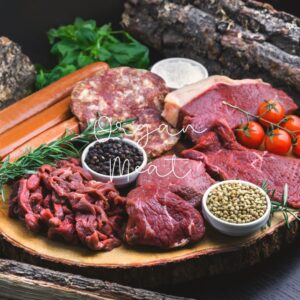Gout is not just painful—it can disrupt your daily life. This condition, caused by excess uric acid in the blood, leads to the formation of crystals in the joints. While medications can help, diet plays a crucial role in preventing and managing gout flare-ups.
Here are the top 10 foods to avoid to keep gout symptoms under control:
10. Sugary Beverages
Why They Trigger Gout:
Sugary drinks, especially those containing high-fructose corn syrup, increase uric acid production. Fructose stimulates the body to produce uric acid, heightening the risk of gout attacks. Studies have linked frequent consumption of sugary sodas to a significantly higher likelihood of gout flare-ups.
Alternatives:
Opt for water, herbal teas, or sparkling water with no added sugars.

Sugary beverages, particularly those loaded with high-fructose corn syrup, play a significant role in the development and exacerbation of gout.
High-fructose corn syrup, a sweetener found in many sodas, fruit juices, and other sweetened drinks, is known for its ability to increase uric acid levels in the blood. Uric acid is a waste product produced by the body.
In people with gout, an excess of uric acid leads to the formation of urate crystals, which accumulate in the joints and cause painful symptoms associated with a gout attack.
Several studies have highlighted the link between sugar intake, particularly fructose, and increased uric acid levels.
For instance, research published in the British Medical Journal found that consumption of sugar-sweetened soft drinks and fructose is associated with an increased risk of gout in men.
This correlation has drawn attention to the importance of dietary choices in managing gout.
It’s worth noting that while sugary beverages can contribute to higher uric acid levels, other factors like genetics and overall health also play a role in gout development.
However, for those prone to gout attacks or already dealing with gout, limiting or avoiding sugary beverages can be a key step in managing the condition.
9. Alcohol (Especially Beer)
Why They Trigger Gout:
Beer is high in purines, which are broken down into uric acid. Additionally, alcohol reduces the kidneys’ ability to excrete uric acid, causing it to build up in the blood.
Alternatives:
If you drink, limit yourself to small amounts of wine, as it has a lower purine content compared to beer or spirits.

The issue with alcohol, especially beer, lies in how it affects the body’s handling of uric acid.
Normally, uric acid is processed and eliminated by the kidneys.
However, when you consume alcohol, it can interfere with this process. Alcohol metabolism in the liver demands attention from the body, diverting resources that would normally be used for uric acid removal.
This disruption can lead to an accumulation of uric acid in the blood, setting the stage for a gout flare-up.
Beer, in particular, compounds this problem. Not only does it contain alcohol, but it’s also rich in purines, substances that break down into uric acid in the body.
This means that beer can increase uric acid levels from two different angles – both through its alcohol content and its purine content.
Studies have shown that alcohol consumption, especially beer, is associated with an increased risk of gout attacks.
For instance, a study published in the New England Journal of Medicine found that men who consumed beer regularly had a higher risk of developing gout compared to those who did not drink alcohol.
For people managing gout, it’s advisable to moderate alcohol intake or avoid it altogether, especially beer.
Reducing alcohol consumption can be a key strategy in lowering the risk of gout flare-ups and managing the condition more effectively.
8. Red Meat
Why It Triggers Gout:
Red meats like beef and lamb contain moderate to high levels of purines, contributing to elevated uric acid levels.
Alternatives:
Choose lean proteins like chicken or plant-based options such as lentils and tofu.

While often a staple in many diets, red meat poses specific concerns for individuals with gout due to its high purine content.
Purines are natural substances found in many foods. When your body breaks down purines, it produces uric acid.
Normally, uric acid is dissolved in the blood and passed through the kidneys into the urine.
However, consuming high-purine foods like red meat can lead to an excess of uric acid.
This excess can result in the formation of urate crystals in the joints, which is the hallmark of a gout attack, causing pain and inflammation.
Research in the New England Journal of Medicine has shown that individuals who consume large amounts of red meat have a significantly higher risk of developing gout than those who consume lower amounts.
For those managing gout or at risk of developing it, moderating red meat intake can be a critical dietary adjustment.
This doesn’t necessarily mean you have to entirely eliminate red meat from your diet, but being mindful of portion sizes and frequency can help manage uric acid levels more effectively.
7. Organ Meats
Why They Trigger Gout:
Organ meats such as liver, kidneys, and sweetbreads are among the richest sources of purines. Consuming them can lead to a rapid rise in uric acid levels.
Alternatives:
Opt for plant-based protein sources or lower-purine animal proteins like eggs and dairy.

For those with gout, these particular types of meats require cautious consideration due to their high purine content.
Organ meats are among the richest sources of purines in the human diet.
Purines themselves aren’t harmful; they’re naturally occurring substances in many foods. However, the problem arises when purines are broken down into uric acid.
In individuals prone to gout, the body’s inability to efficiently process and eliminate this excess uric acid leads to its crystallization in the joints, triggering the painful and inflammatory responses characteristic of gout attacks.
Numerous dietary guidelines for gout often specifically advise limiting the intake of organ meats to manage uric acid levels effectively.
So for those managing gout or looking to prevent its onset, being mindful of the consumption of organ meats is key.
While they can be nutritious, their high purine content makes them a significant risk factor for gout flare-ups.
Substituting organ meats with lower-purine protein sources or opting for plant-based alternatives can be an effective strategy in a gout-friendly diet.
6. Seafood (Anchovies, Sardines, Shellfish)
Why It Triggers Gout:
Certain seafood, including anchovies, sardines, and shellfish, are packed with purines. These increase uric acid production, triggering gout attacks.
Alternatives:
Stick to lower-purine fish like salmon or cod, and limit portions.

While seafood is often lauded for its health benefits, it can be a double-edged sword for individuals with gout due to its purine content.
Seafoods such as shellfish, anchovies, and sardines are particularly high in purines.
When these purines are broken down in the body, they produce uric acid.
For people with gout, managing purine intake is crucial because their bodies may struggle to process and eliminate high levels of uric acid efficiently.
And as we mentioned earlier, this can lead to an accumulation of uric acid and the formation of painful urate crystals in the joints.
Studies published in journals like Arthritis & Rheumatism have indicated that consumption of certain seafood is linked with an increased risk of gout attacks.
However, it’s important to note that not all seafood is equally problematic for gout.
Some types of fish and shellfish have lower purine content and may be more suitable for those with gout.
The key is moderation and mindful selection.
For gout sufferers, it may be wise to limit the intake of high-purine seafood and explore other protein sources that are lower in purines.
This doesn’t mean having to give up seafood entirely, but rather choosing varieties with lower purine levels and enjoying them in moderation.
5. Refined Carbohydrates
Why They Trigger Gout:
White bread, pastries, and other refined carbs lack fiber and nutrients, leading to spikes in insulin and reduced uric acid excretion.
Alternatives:
Swap refined carbs for whole grains like brown rice, quinoa, or whole-wheat bread.

Interestingly, while these foods aren’t high in purines – the usual suspects in gout flare-ups – they still play a significant role in exacerbating gout symptoms.
Refined carbs, found in foods like white bread, pastries, and other processed snacks, are stripped of their natural fiber and nutrients during processing.
This not only reduces their nutritional value but also impacts how they are metabolized by the body.
The rapid digestion of these carbs can lead to spikes in blood sugar levels.
This process can increase insulin levels in the body, which in turn may hinder uric acid excretion by the kidneys, leading to higher uric acid levels in the blood.
While the direct link between refined carbs and gout is more complex than the straightforward connection with high-purine foods, studies have suggested that a diet high in refined carbohydrates can contribute to an increased risk of gout.
So, for individuals managing gout, it’s advisable to limit the intake of refined carbohydrates.
Opting for whole grains and complex carbohydrates, which are digested more slowly and have a lesser impact on blood sugar and insulin levels, can be a healthier choice.
These foods not only provide better nutritional value but also help in managing overall health, thereby contributing to better management of gout.
4. Processed Snacks
Why They Trigger Gout:
Chips, crackers, and other processed snacks are often high in sodium, unhealthy fats, and added sugars. These can exacerbate gout symptoms indirectly by contributing to weight gain and poor kidney function.
Alternatives:
Choose whole-food snacks like nuts, seeds, or fresh fruit.

These snacks are ubiquitous in many diets but can be problematic for those with gout, albeit in a less direct way compared to high-purine foods.
Processed snacks often contain excessive amounts of sodium, unhealthy fats, and added sugars.
These components can contribute to overall poor health, particularly in the context of weight management and cardiovascular health.
For individuals with gout, maintaining a healthy weight and cardiovascular system is important, as being overweight and having heart issues can exacerbate the symptoms of gout.
Excess weight, for example, can put more pressure on the joints and increase the risk of gout attacks.
Additionally, unhealthy dietary habits that lead to conditions like hypertension and insulin resistance can impact the body’s ability to process and eliminate uric acid effectively.
This can result in higher uric acid levels and, consequently, more frequent and severe gout flare-ups.
For those managing gout, it’s beneficial to limit the intake of processed snacks and opt for healthier alternatives.
Choosing snacks that are lower in sodium and unhealthy fats and higher in natural nutrients can help manage weight, improve overall health, and consequently aid in controlling gout symptoms.
3. High-Fat Dairy Products
Why They Trigger Gout:
Full-fat dairy products like cream, butter, and cheese are high in saturated fats, which may reduce the kidneys’ efficiency in excreting uric acid.
Alternatives:
Opt for low-fat or fat-free dairy options, which may even help reduce gout risk.

While dairy is an essential part of many diets, the type of dairy you choose can significantly impact gout management.
High-fat dairy products, such as whole milk, cream, and certain cheeses, have a higher content of saturated fats.
Unlike their low-fat counterparts, these high-fat options can contribute to an increased risk of gout flare-ups.
The reason behind this is twofold.
Firstly, high intake of saturated fats can lead to weight gain and obesity, which are known risk factors for gout.
Excess weight can put additional pressure on joints and exacerbate the symptoms of gout.
Secondly, diets high in saturated fats can impact the body’s ability to process and eliminate uric acid.
Efficient removal of uric acid is crucial for gout sufferers to prevent the buildup of urate crystals in the joints.
When this process is hindered, it can lead to higher uric acid levels and consequently, trigger gout attacks.
It’s important to note that dairy itself isn’t a direct cause of gout. In fact, some studies suggest that low-fat dairy products might even have a protective effect against gout.
For example, research published in the New England Journal of Medicine has indicated that intake of low-fat dairy products may reduce the risk of gout.
For individuals managing gout, the key is to choose wisely when it comes to dairy.
Opting for low-fat or fat-free dairy options can be a better choice.
These products provide the nutritional benefits of dairy without the added risk of exacerbating gout symptoms that come with high-fat varieties.
2. Asparagus and Spinach
Why They Trigger Gout:
While vegetables are typically healthy, asparagus and spinach contain moderate purine levels. For sensitive individuals, excessive consumption might contribute to increased uric acid.
Alternatives:
Enjoy low-purine vegetables like zucchini, bell peppers, and carrots.

Certain vegetables, specifically asparagus and spinach. It’s a bit of a twist, considering we often hear about the myriad health benefits of vegetables.
However, for individuals with gout, these specific veggies warrant a closer look due to their moderate purine content.
Asparagus and spinach, while packed with nutrients and generally considered superfoods, do contain moderate levels of purines.
Purines are natural substances found in many foods, and when your body breaks them down, uric acid is produced.
In most people, this isn’t a concern, but for those prone to gout, excessive purine intake can lead to increased levels of uric acid, heightening the risk of gout flare-ups.
Now, it’s important to keep this in perspective.
The purine content in asparagus and spinach is not as high as in foods like red meat or certain seafood, but it can still be significant for someone who is particularly sensitive to purines or who has severe gout.
Studies have shown that while dietary purines from animal sources are more strongly associated with gout risk, purines from vegetable sources can also contribute, albeit to a lesser extent.
It’s a bit of a balancing act – getting the nutritional benefits of these vegetables while not overdoing it to the point where it could trigger a gout attack.
For those managing gout, you don’t necessarily have to eliminate asparagus and spinach from your diet.
Instead, consuming them in moderation and paying attention to your overall purine intake can be a practical approach.
This way, you can still enjoy the health benefits they offer without significantly increasing your risk of gout flare-ups.
1. Sweetened Foods
Why They Trigger Gout:
Foods high in added sugars, particularly fructose, contribute to elevated uric acid production. Sweetened snacks, candies, and baked goods are major culprits.
Alternatives:
Satisfy your sweet tooth with fresh fruits like cherries, which are known to help reduce uric acid levels.

Sweetened foods, especially those high in added sugars and particularly fructose, have a direct effect on uric acid production.
Fructose is a type of sugar that, when metabolized by the body, can lead to an increase in the production of uric acid.
This increase is problematic for individuals with gout, as elevated uric acid levels can lead to the formation of urate crystals in the joints, causing the painful and inflammatory flare-ups characteristic of the condition.
A study published in the Journal of the American Medical Association found that consumption of fructose-rich beverages is strongly associated with an increased risk of gout in men.
For those with gout, it’s advisable to significantly reduce or eliminate the intake of sweetened foods, particularly those containing high-fructose corn syrup and other added sugars.
This includes soft drinks, candy, baked goods, and other processed snacks and beverages that are high in added sugars.
And there you have it – our comprehensive countdown of the 10 Worst Foods That Trigger Gout Flare-Ups.
We hope this list provided you with valuable insights into managing your diet to keep gout at bay.
Remember, managing gout effectively goes beyond medication; it involves making informed dietary choices.
While it can seem challenging to avoid these foods, small changes in your diet can make a significant difference in reducing gout flare-ups.
Before you go, we’d love to hear from you in the comments.
Are there any particular foods that you’ve found to trigger or alleviate your gout symptoms?
Any tips or recipes you’d like to share with the community?
Your contributions are valuable and could help others on their journey.
Stay informed, make smart food choices, and take control of your gout management.